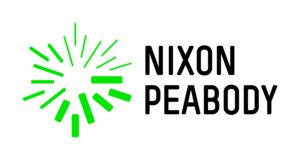
If you’re getting into the spirit of spring cleaning, take a moment to review your brewery’s social media accounts. Anything on social media that meets the TTB’s definition of “advertisement” must also comply with the TTB’s advertising regulations.
The TTB defines “advertisement” very broadly—it includes any written or verbal statement, illustration, or depiction that is in, or calculated to induce sales in, interstate or foreign commerce. Fortunately, the TTB issued an industry circular in 2013 to provide some guidance as to how and where to include mandatory statements on different types of social media.
Generally speaking, whole pages or sites are considered to be single advertisements, and mandatory statements are only required to appear in one place. The mandatory information must be conspicuous and legible, clearly part of the advertisement, and readily apparent to the reader. Therefore, the information should not be hidden or buried but should appear prominently, and on the user profile page if possible. On Facebook for example, the information should appear on the “About” tab. If any content is designed to be downloaded by users, mandatory information should be included in the download. Where links are provided, caution should be taken as to whether the linked information is part of the industry member’s “advertisement,” in which case it should contain mandatory statements. Content that is provided via QR code will generally be an advertisement and should contain mandatory information. On the other hand, because mobile apps are downloaded by the consumer, they are considered to be consumer specialty advertisements and need only contain the company name or the brand name of the product.
In addition to including mandatory statements, you must also avoid making prohibited statements in social media. For example, social media posts must be truthful and not misleading, cannot disparage competitor products, and cannot promote intoxicating qualities. Caution must be used with age or date statements, flags and other insignia, origin claims, organic or purity statements, and anything that might lead to brand confusion. In particular, extreme caution must be exercised with any claim that relates to claimed health benefits of the product or its ingredients; this type of statement is almost invariably prohibited for alcoholic products.
The TTB’s advisory does not change current laws and enforcement, or current self-regulation practices, but it is a good reminder that breweries should exercise the same care regarding a website, Facebook page, or Twitter feed as they would take with a full-page print media advertisement.
